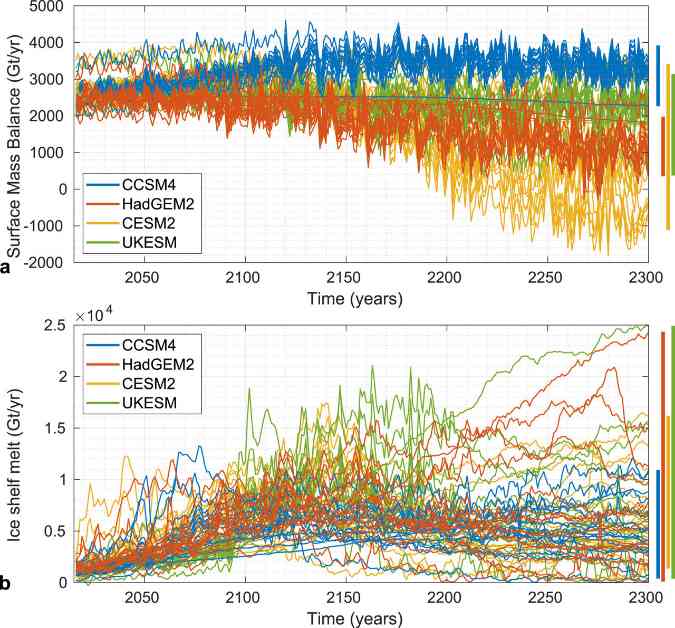A recent study led by Dartmouth and involving over 50 climate scientists globally has provided a clear projection of how carbon emissions could impact the loss of Antarctica’s ice sheet in the next 300 years. The study, published in Earth’s Future, combines data from 16 ice-sheet models and reveals that while ice loss in Antarctica will gradually increase through the 21st century, it drastically accelerates after 2100.
Under current emissions, the models predict rapid retreat of ice in most of Antarctica’s western basins by 2200, potentially raising global sea levels by up to 5.5 feet. Some projections even suggest a near-total collapse of the Antarctic ice sheet by 2300. This long-term impact beyond 2100 highlights the urgency of addressing carbon emissions to mitigate future sea-level rise.
The study emphasizes the importance of cutting carbon emissions now to protect future generations. While current emissions have a modest impact on model projections for this century, the difference between high- and low-emission scenarios in contributing to sea-level rise becomes significant post-2100. The researchers stress the need for immediate action to reduce emissions and safeguard vulnerable regions from irreversible ice loss.
The timing of glacier retreat in Antarctica varies among ice-flow models, but once significant ice loss begins, the models agree that the process is irreversible and unstoppable. This underscores the urgency of addressing greenhouse gas emissions to prevent the collapse of major basins in West Antarctica before 2200.
The collaborative nature of this study allows for the development of more robust models that can help resolve disparities in projections and uncertainties regarding ice loss in Antarctica. By focusing on areas of agreement and disagreement among models, scientists can direct future research efforts towards understanding and predicting the most likely outcomes.
This research not only sheds light on the potential consequences of current emissions on Antarctica’s ice sheet but also underscores the need for immediate action to curb carbon emissions. The study serves as a call to policymakers, stakeholders, and the global community to prioritize sustainability and climate action to prevent irreversible damage to Antarctica’s glaciers and mitigate future sea-level rise.
Overall, this study provides critical insights into the long-term impacts of carbon emissions on Antarctica’s ice sheet and emphasizes the importance of taking proactive measures to address climate change and protect the planet’s vulnerable ecosystems.
